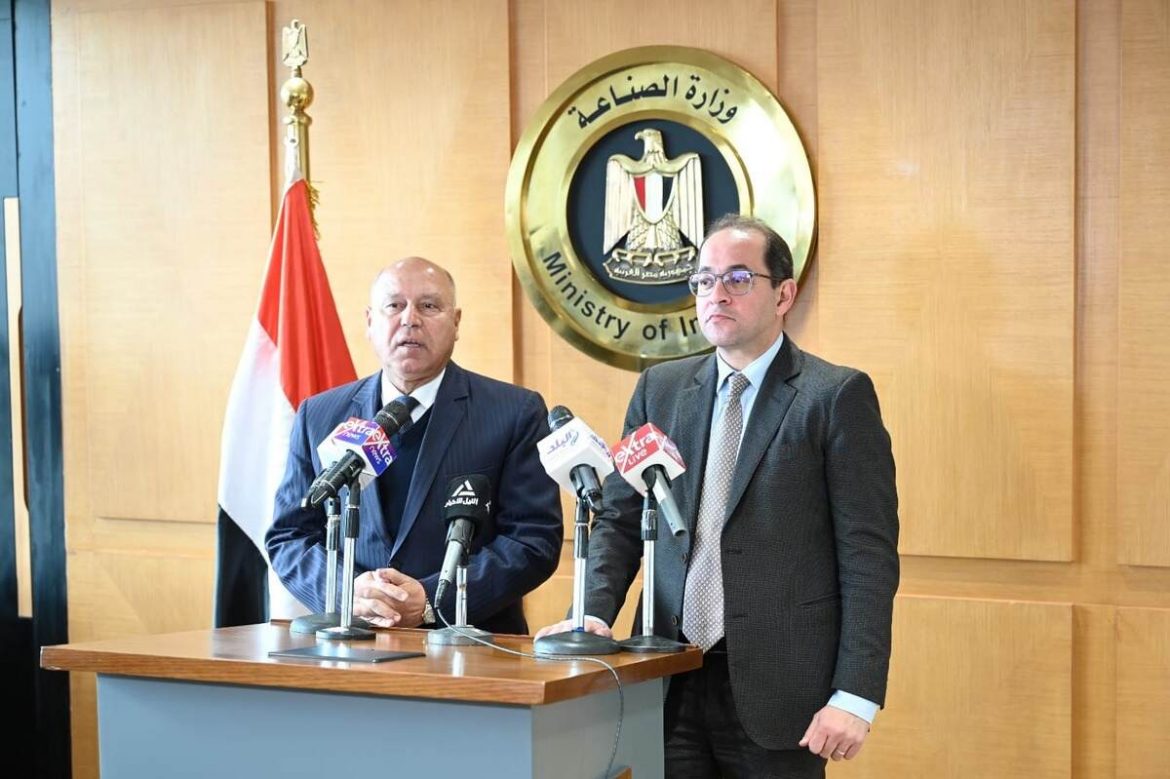The program targets enterprises in pharmaceuticals, food, engineering, chemicals, textiles, mining, and construction
Egypt has introduced a new initiative aimed at assisting the private sector in acquiring machinery, equipment, and production lines. This initiative was announced by Kamel Al-Wazir, deputy prime minister for Industrial Development and Minister of Industry and Transport, alongside Minister of Finance Ahmed Kouchouk. It allocates EGP30 billion ($589.8 million) in financing to businesses operating in vital industrial sectors.
The program specifically targets enterprises in industries such as pharmaceuticals, food production, engineering, chemicals, textiles, mining, and construction materials. There is a particular focus on high-priority regions, including Upper Egypt, border governorates like the Red Sea, and areas along the Suez Canal, such as Port Said, Ismailia, and Suez.
Financing and interest rates
This initiative provides subsidized financing, with the government covering the interest rate differential to enhance production capacity and contribute to economic growth. Qualifying companies will benefit from an interest rate of 15 percent for a duration of five years from the program’s inception. Each company can secure a maximum financing amount of EGP75 million, while associated parties can access up to EGP100 million.
Incentives for local production
To promote increased local production, the initiative offers additional interest rate reductions based on the percentage of local value added. Companies that boost their local value added by 7-10 percent relative to the previous fiscal year will receive a 1 percent interest rate reduction. If the increase surpasses 10 percent, the reduction increases to 1.5 percent. Moreover, companies engaged in new industrial activities, especially those with substantial import volumes, will receive an extra 2 percent reduction.
Eligibility requirements
Eligibility for this financing requires companies to secure a construction license, complete construction, and either open a letter of credit for imported machinery or equipment or present a tax invoice for locally sourced items. Additionally, subsidized financing cannot be utilized to settle existing debts with banks.
Read more: Egypt, Türkiye forge $7 billion investment deal for new industrial zone
Targeted sectors and areas of focus
The initiative concentrates on seven key industrial sectors:
- Pharmaceuticals (including active ingredients and cosmetics)
- Engineering industries (covering machinery, renewable energy components, and electronics)
- Food industries (such as milk, dried fruits, and concentrates)
- Textile industries (including yarns)
- Chemical industries (like inks and plastics)
- Mining industries (focused on ore preparation)
- Building materials (including ceramics, marble, and pipes)
The government has stated that the initiative will be reassessed based on actual increases in production, local value added, company assets, revenues, and the localization of new industries within global supply chains.
Complementary government initiatives
Minister Al-Wazir also emphasized that this new initiative is one of three significant efforts currently in progress to promote the industrial sector. The first initiative, launched by the Central Bank of Egypt, aims to finance the acquisition of machinery and equipment across various industrial segments. The second initiative, under consideration by the Central Bank, focuses on establishing a fund to support struggling factories through financial contributions from banks and investors.
Al-Wazir clarified that companies benefiting from the previous initiative will not qualify for the new program.
Support for industrial investors
Additionally, the Ministry of Petroleum and Mineral Resources has introduced measures to assist industrial investors in addressing outstanding debts. These measures include the repayment of overdue debts within three months for 1,700 industrial investors (which accounts for 50 percent of total clients), as well as installment plans for new debts over a period of up to 10 years, aligned with the Central Bank’s interest rate. Moreover, export factories that transact in foreign currency will be allowed to use the previous month’s exchange rate to mitigate the impact of fluctuations.
Financial flexibility for gas connections
For industrial facilities seeking gas connections, the associated costs can be paid in installments over two years without interest. Retrospective claims exceeding the government rate will be canceled, and a protocol will be established to enable industrial clients to supply used oils to the petroleum sector in exchange for debt reductions.
Optimizing mineral resources
Beyond these immediate actions, the government is also dedicated to optimizing Egypt’s mineral resources. A review of a study on phosphate ore utilization has led to recommendations aimed at enhancing the manufacturing of phosphoric acid and phosphate fertilizers, improving exploration efforts, and establishing a more value-added industry for both domestic and export markets.
Strategic plan for aluminum industry
The Ministry of Public Enterprises is also formulating a comprehensive plan for Egypt’s aluminum industry, with investments totaling $260 million over five years intended to expand production capacity, reduce imports, and increase exports. This includes several industrial initiatives such as new production lines, aluminum slag recycling, and solar power integration, all designed to boost both the industry and Egypt’s broader economic objectives.
This new financing initiative forms part of Egypt’s overarching strategy to promote industrial growth, enhance local production, and improve the competitiveness of the private sector. By providing targeted financial support and incentivizing local value addition, the government aims to stimulate investment in priority sectors, drive innovation, and strengthen Egypt’s position within global supply chains.
